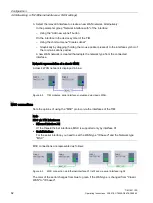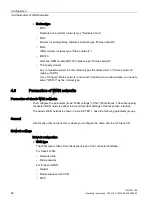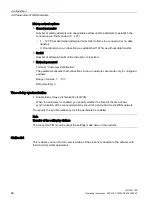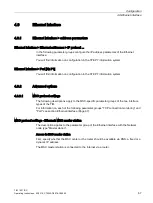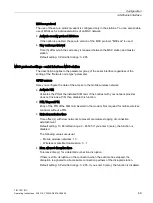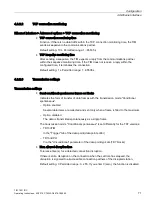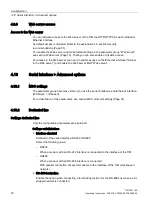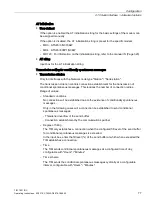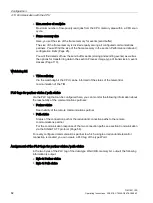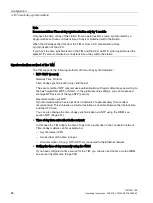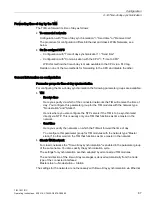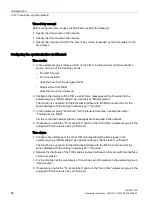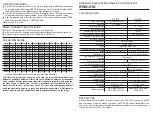
Configuration
4.10 Serial interface > Advanced options
TIM 1531 IRC
Operating Instructions, 02/2018, C79000-G8976-C468-02
73
Number of spontaneous frames
●
Number of spontaneous frames
Only for interfaces with the Network node type "Station" / "Node station".
The parameter decides after how many frames the master station has the opportunity of
transferring its pending frames to the station. As maximum, the configured number of
spontaneous frames that are pending at the time of the first call frame are transferred.
Default setting: 200. Permitted range: 0...255
If 0 (zero) is set, all spontaneous frames are sent at the call.
Connection establishment
●
Extra transmission time
Time offset (s) with slow networks to prevent premature stopping of connection
establishment.
Default setting: 10. Permitted range: 0...65535. If you enter 0 (zero), the function is
disabled.
Usually in dedicated line networks the value is 0:
Time options
●
RTS/CTS delay time
The RTS/CTS delay (ms) can be required when a modem is connected via an RS-485
interface.
Default setting: 0. Permitted range: 0...65535
–
Value 0
After setting the RTS signal, (turn transmitter on) transmission only starts when the
CTS signal (Clear To Send) was set by the modem.
–
Value > 0
Transmission is not delayed until the CTS signal of the modem.
After the RTS signal has been set, transmission is delayed for the configured time and
then started immediately.
●
Send delay time
The send delay time (ms) is used only when the ready to send (CTS signal) comes from
the modem (RTS/CTS delay time = 0).
As soon as the CTS signal comes from the modem, the send delay time is started.
Sending starts after the time has elapsed.
Default setting: 0. Permitted range: 0...65535




